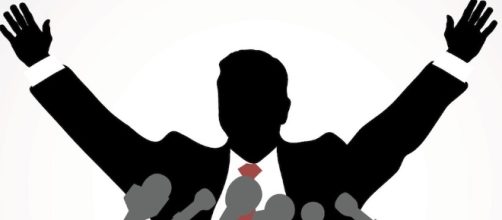It is easy for any politician to be caught up in the euphoria of a political campaign and the game of presentations, speeches and meeting the people. Then the day after election the politician becomes the subject of judgment as President Donald Trump is learning in the first months of his presidency. Yet on what do we judge the politician in office?
Promises
The first measure of judgment is simple and almost the most deceiving. Campaign promises are easy to make in the heat of a rally but then comes the moment when the winning politician must put these promises into effect.
As we have saw in the Health Care debate, the deciding factor is not always the single politician but the capacity of crunch numbers to ensure that a bill gets passed. This is not always possible, sometimes because the bill is flawed or the numbers in the house are simply not enough.
If the bill is rejected by the members of the politician’s Party the failure is as much of the politician as it is of the Party itself.
This is the stage when the true politician stands up. The moments of difficulty can only be overcome by inclusion of all the forces in the Houses and not simply by the governing party.
Opposition
Any parliament is made up of two forces, those that govern and those that oppose. Although they may have differing overall agendas there are often points in common that allow room for these forces to manoeuvre and allow a hotly contested bill to be passed, even if in modified form.
A President or any leader of the country does not represent one single group but all the country’s citizens and must bear in mind the worries of each category. Working with the opposition is a means to ensure this happens and that important legislation is passed.
Judgment of a politician also includes how that leader manages to obtain collaboration on shared goals and ideas. When a government is unwilling to open the doors to other ideas it is the sign of egoism rather than a desire to carry on with the job of governing and a citizen judging his politician will bear this in mind at the next election.
Reality
There are moments in every politician’s life where it is impossible to carry out a promise or to complete a task.
Not just because the numbers in the houses are not enough but because the constitutional limits do not allow the proposed changes to come into effect.
For a politician the failure is very public and the citizen also judges the politician’s behaviour on these moments of difficulty. The true and successful politician is the one who accepts personal responsibility for these defeats and finds the best means to continue with the work at hand instead of trying to find scapegoats or avoiding the issues.
Winston Churchill was considered a failure for much of his political life but when he was chosen to lead his country he found the strength of character to lead England through one of the greatest trials in its history.
Crisis
Then comes the moment when something unexpected happens that totally changes the course of an Administration. This happened to George W. Bush on September 11th, 2001 with the terrorist attack on the World Trade Centre in New York.
The reaction of the country’s leader then becomes of prime importance for how the politician will be judged. In many ways it is still too early to give a definitive judgment on the 43rd President but the fact that he was subsequently re-elected signalled the willingness of the country to follow him. The other judgments will come in the History Books.
Nobody knows how Donald Trump will behave in such a moment and hopefully we will never find out.
Judgment
A politician’s life is dominated by the judgments of those who work with him or her and ultimately on the judgment of the citizens.
This is the bane and the glory of a politician’s life.
In any case the final judgment will not be on rhetoric but on results and will come in the ballot box. Future history books will give other judgments but they will not change our lives as voting does.

